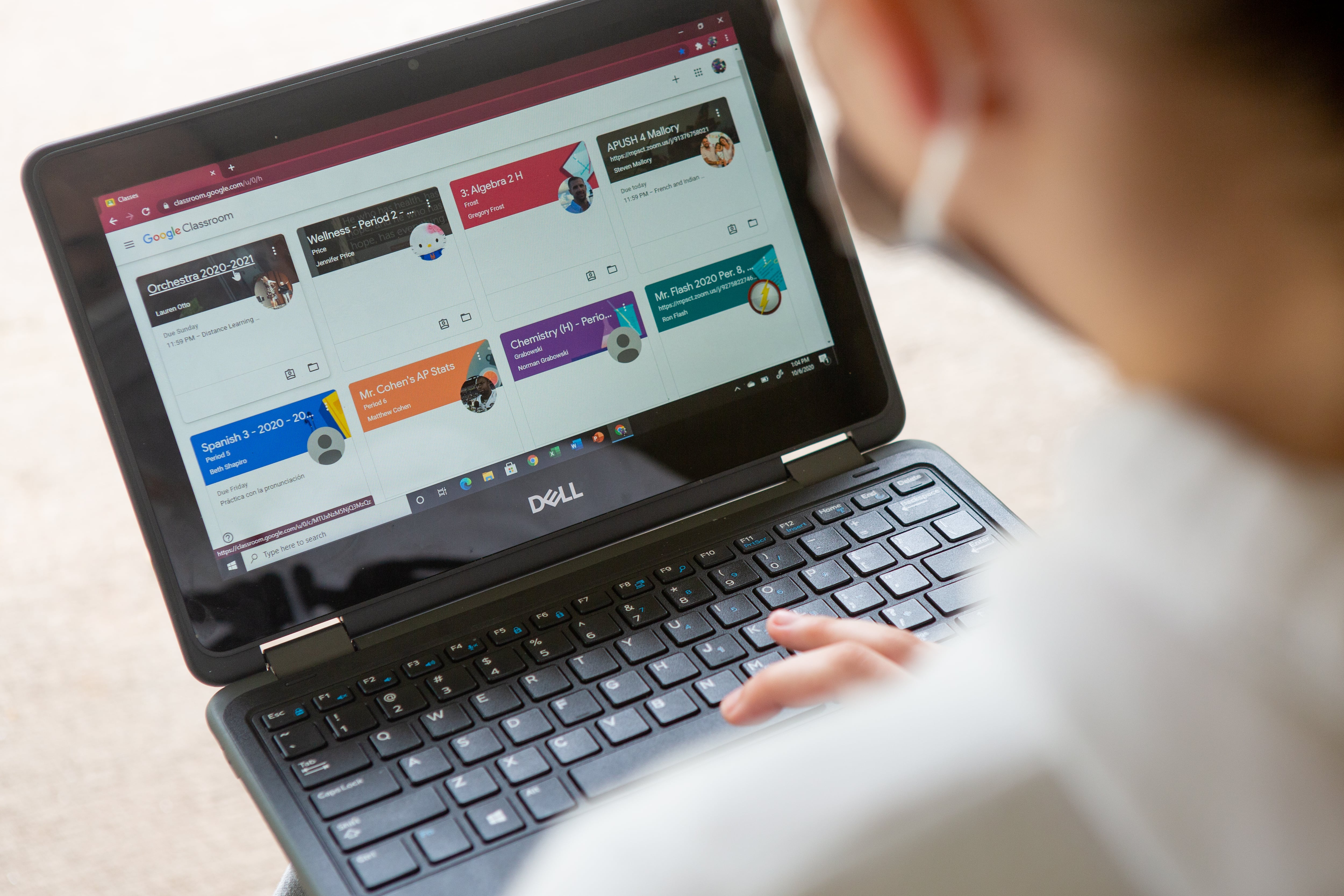Pennsylvania has the highest number of students in cyber charter schools and spends the most on them of any state, but has the weakest oversight of academic and fiscal performance, a new study has found.
The report by the advocacy group Children First found that enrollment in Pennsylvania’s 14 cyber schools soared by 59% during the 2021-21 school year to nearly 61,000 students, or about three times the size of the Pittsburgh school district, the state’s second largest after Philadelphia.
“All 14 cybers scores below state average in reading and math,” said ML Wernecke, the primary author of the report and director of the PA Charter Performance Center, a project of Children First. The charters’ high school graduation rate is 54%, well below the state average, she said.
But almost all – 99.7% – of charter enrollment growth over the past two years has come in these online schools, the report said, fueled by the pandemic.
At the same time, the amount that districts are paying in the form of tuition for their students who attend cyber charter schools is approaching $1 billion “and have doubled over the last five years,” Wernecke said.
The report attributed the surge in enrollment in part to the concerns of parents “whether schools would open and stay open during the initial year of the pandemic.” And it warned that the “persistence of COVID and its multiple variants means that this trend is likely to continue, especially in light of pervasive advertising on TV and other media by cyber charter schools.”
Another recent study by Education Voters PA using information from a right-to-know request found that cyber charters spent $35 million in advertising over the last two years.
The Pennsylvania Coalition for Public Charter Schools could not be reached for comment.
Cyber charters are authorized by the state, not local districts, which nevertheless absorb the cost under a 20-year-old funding system that has never been updated.
Under the system, there is no standard tuition rate for cybers; they get the same amount as brick-and-mortar charters, even though their costs are less.
Districts are required to pay tuition for each student who enrolls in any charter, an amount calculated based on a district’s own spending. The per-pupil rate can vary from around $8,900 to $24,000 per student.
There are also different rates depending on whether a student needs special education services, also calculated based on a district’s own spending and unrelated to the actual cost of educating the student.
Because the districts have no control over the cyber schools, opposition to the current system has united rural and urban districts in urging change. The school boards in 410 of Pennsylvania’s 500 districts have passed resolutions calling for charter funding reform.
A bill is pending in the legislature that would overhaul charter funding in the state; among its provisions is to set one payment for cyber charter schools.
“Charter schools are here to stay, we’re not calling for abolishing them,” said Bob O’Donnell, superintendent of the State College Area School District. “But we have to align funding with actual expenses.”
Cyber charters especially, he said, “don’t share building and maintenance costs. Many are receiving a higher rate per-pupil than they should.”
Three state legislators spoke during Thursday’s virtual press conference announcing the report’s findings, two Democrats and a Republican. And while all said they favored school choice, including cyber charters, they agreed that the law governing how charters are paid for, especially cyber charters, is long overdue for revision.
Rep. Curtis Sonney, an Erie Republican who is the majority chair of the House Education Committee, said he was dismayed at a lack of movement in the legislature on the issue.
“We’re continually moving charter reform legislation out of the House. There is a frustration in not being able to get anything across the finish line,” he said.
Rep. Joseph Ciresi, a Democrat from Montgomery County and sponsor of HB272, which would reform charter funding and regulation, called the current law “way outdated…it’s costing our districts hundreds of millions of dollars.”
Rep. Jordan Harris, a Philadelphia Democrat, also said reform was long overdue.
“We need to update charter law and address oversight and funding, but also address the fact that so many parents are dissatisfied with the option provided every day in our traditional schools,” he said. “We cannot ignore the fact that parents are making the decision to want something different.”






